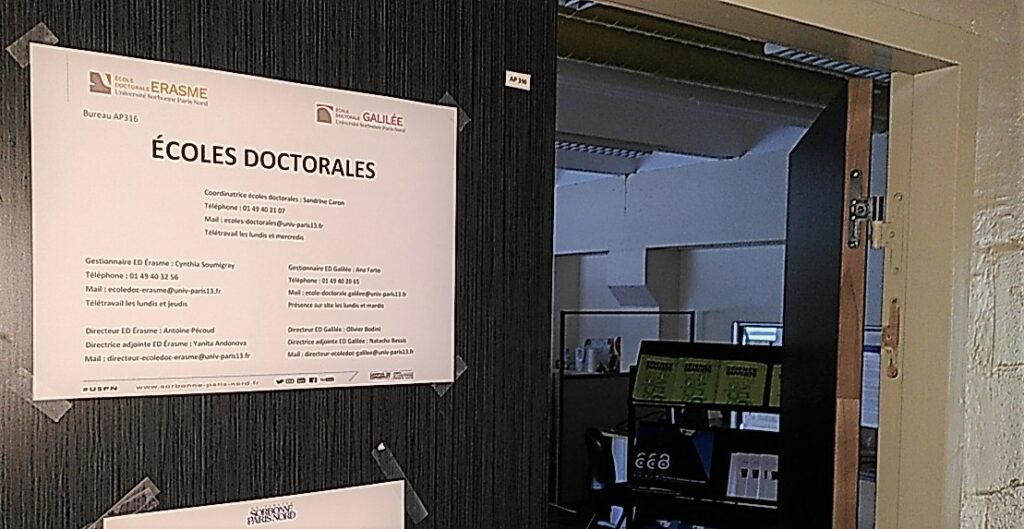Every year, more than 60 people pursue doctoral degrees in the human and social sciences (SHS) at the Université de Paris Sorbonne Paris Nord in Villetaneuse, about 15 km north of Paris. Their research is coordinated by an École Doctorale, named after Erasmus since about 2010. A staff member at the school tells me that the then director, Dominique Philon, chose this name because of Erasmus’ commitment to this broad field of science.

I have an appointment with the current principal Antoine Pécoud, who is happy to make time to speak to someone with such a remarkable project as mine, “even though there may not be that much Erasmian about our school.” He does ask me if it wouldn’t be even better to travel on horseback. A Montaigne follower, Gaspard Kœnig, did make such a trip recently: Notre vagabonde liberté, À cheval sur les traces de Montaigne. On horseback is certainly more authentic, but less 21st century.
Antoine is also a sociology professor and fortunately he gave me his phone number, because the physical visibility of the École Doctorale Érasme is limited to a single poster and a currently empty office. I had not found that easily.
The École is responsible for all kinds of practical matters of the research of the doctoral students, who often also work abroad, of course for guarding the quality of this highest scientific degree and for the corresponding administration. We compare the incisive way in which the University of Turin at the time awarded Erasmus the doctoral degree – within a week of his arrival based on everything he had already shown in his publications, but still with a defense – with the protocols of today. Which is more responsible? And what would Erasmus himself think of all this?
Nice to think together about what Erasmus’ ideas can still mean today. Thanks for that, Antoine. At the end of the afternoon I cycle back to my temporary home.
